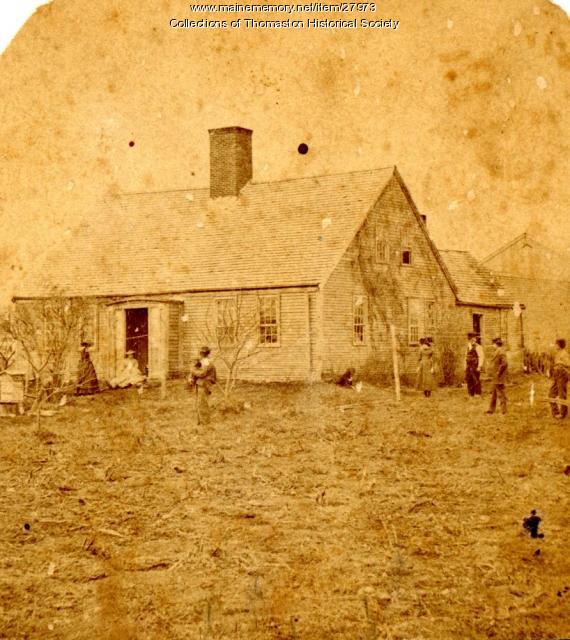Keywords: Free slaves
Item 74246
Planters' request for return of slaves, New Orleans, 1862
Contributed by: Maine Historical Society Date: 1862 Location: New Orleans Media: Ink on paper
Item 74541
Warning to Gen. Shepley on slaves, New Orleans, 1862
Contributed by: Maine Historical Society Date: 1862-12-15 Location: New Orleans Media: Ink on paper
Exhibit
Reuben Ruby: Hackman, Activist
Reuben Ruby of Portland operated a hack in the city, using his work to earn a living and to help carry out his activist interests, especially abolition and the Underground Railroad.
Exhibit
George F. Shepley: Lawyer, Soldier, Administrator
George F. Shepley of Portland had achieved renown as a lawyer and as U.S. Attorney for Maine when, at age 42 he formed the 12th Maine Infantry and went off to war. Shepley became military governor of Louisiana early in 1862 and remained in the military for the duration of the war.
Site Page
Thomaston: The Town that Went to Sea - Atticus: A Fugitive Slave
"I was a slave then…” Although it was indeed Atticus, he was a free man under a new name and controlled a gang of stevedores (men who load ships)."
Site Page
"My family or people I know could be involved as slaves or they might have owned slaves. We wouldn't have the rights to a lot of things that we have…"
Lesson Plan
Longfellow Studies: "The Slave's Dream"
Grade Level: 6-8, 9-12
Content Area: English Language Arts, Social Studies
In December of 1842 Henry Wadsworth Longfellow's Poems on Slavery was published. "The Slave's Dream" is one of eight anti-slavery poems in the collection. A beautifully crafted and emotionally moving poem, it mesmerizes the reader with the last thoughts of an African King bound to slavery, as he lies dying in a field of rice. The 'landscape of his dreams' include the lordly Niger flowing, his green-eyed Queen, the Caffre huts and all of the sights and sounds of his homeland until at last 'Death illuminates his Land of Sleep.'










